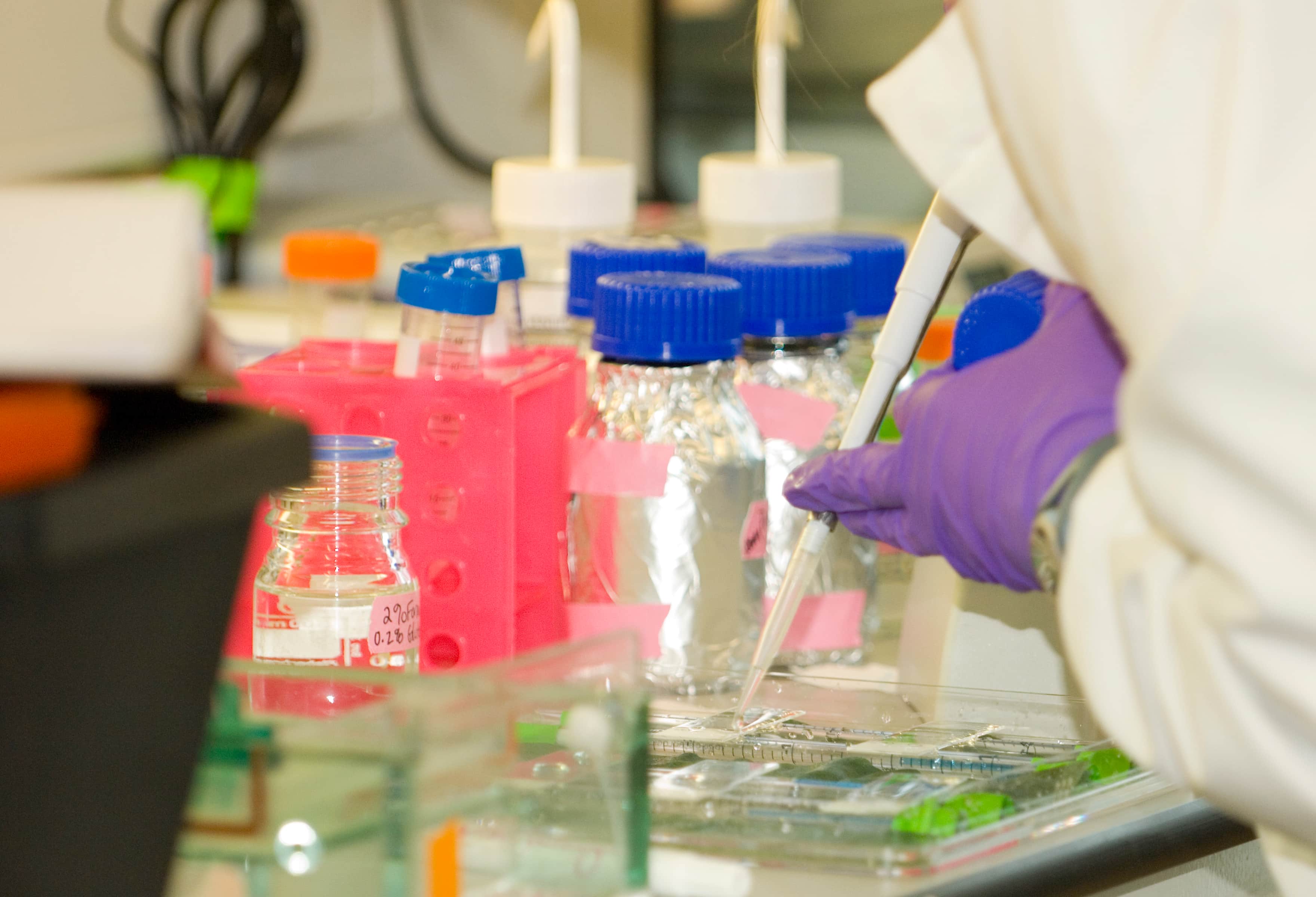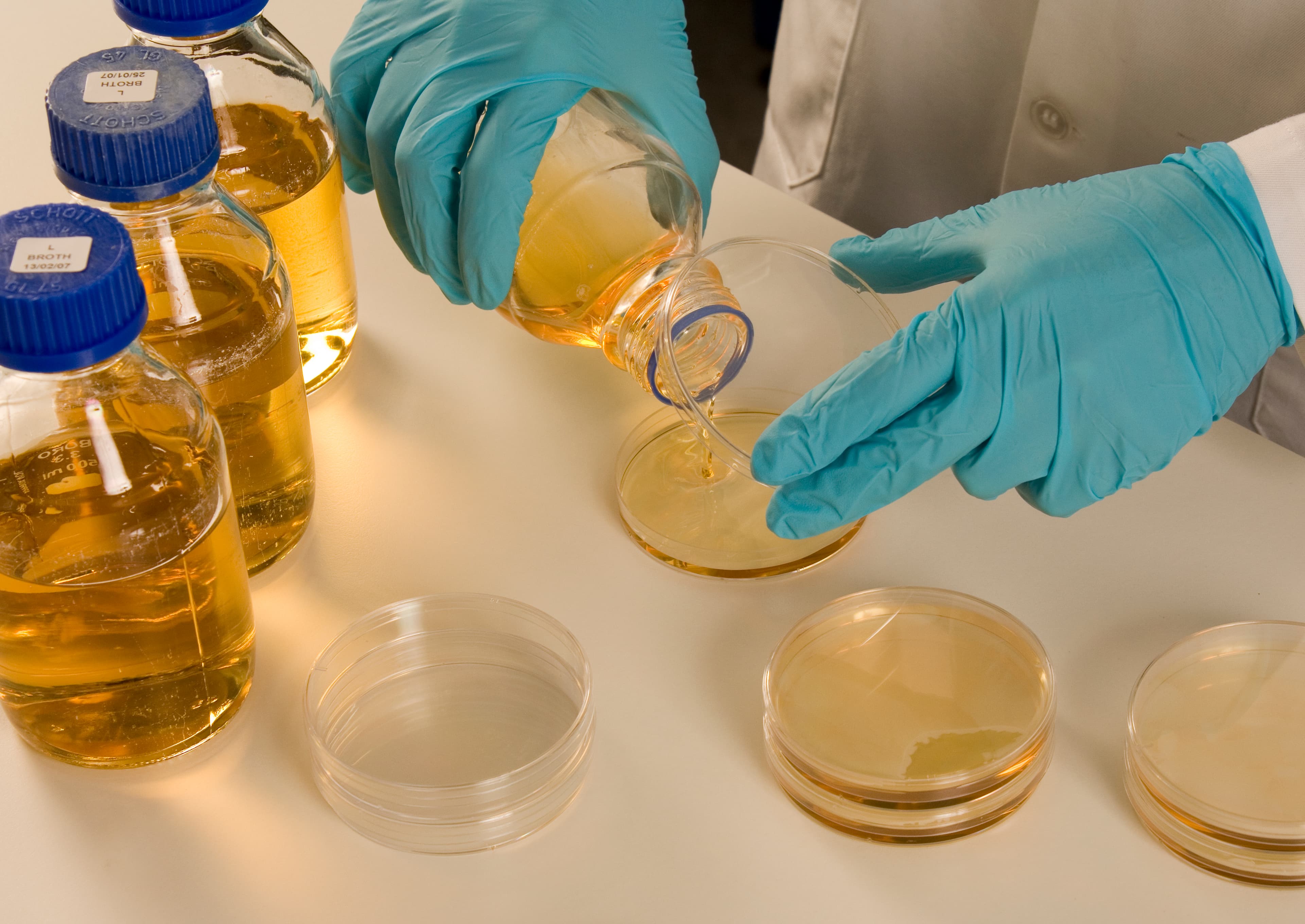
We have pledged to tackle pancreatic cancer as one of four ‘hard to treat’ cancers outlined in our 2014 strategy. This means we have increased our funding for research in this area, and we are looking at ways to boost the number of researchers who are working in the field. Below are some examples of what our researchers are doing right now.
In Glasgow, one of Professor Jennifer Morton's projects is investigating whether pancreatic tumours release biological signals, called biomarkers, into the blood. She aims to identify which specific molecules are released into the blood by the cancer and how this varies. She will then look to see whether these same molecules can be found in blood samples from people with pancreatic cancer with the hope to create a blood test that could be offered to people at high risk of developing pancreatic cancer.
At the CRUK Scotland Institute in Glasgow, Dr Thomas MacVicar is investigating how the transport of molecules called metabolites in and out of mitochondria in pancreatic cancer cells help them to perform special reactions that allow them to survive and become resistant to treatment. By researching the role of these metabolites, we can identify new therapeutic targets for pancreatic cancer treatments.
In Edinburgh, Professor Simon Wilkinson is studying a part of our cells called the endoplasmic reticulum (ER). The ER is like a factory, responsible for building proteins and storing, modifying and transporting important molecules. Prof Wilkinson wants to understand how pancreatic cancer cells might be ‘recycling’ the ER to help tumours grow and how we might disrupt it, preventing tumours from growing.

Thanks to research, we've helped change the outlook for people with pancreatic cancer.

Meet people like Peter who have experienced first-hand how our research is making a difference. The life-saving research we do wouldn’t be possible without your support.
Want to find more information about our research or pancreatic cancer?